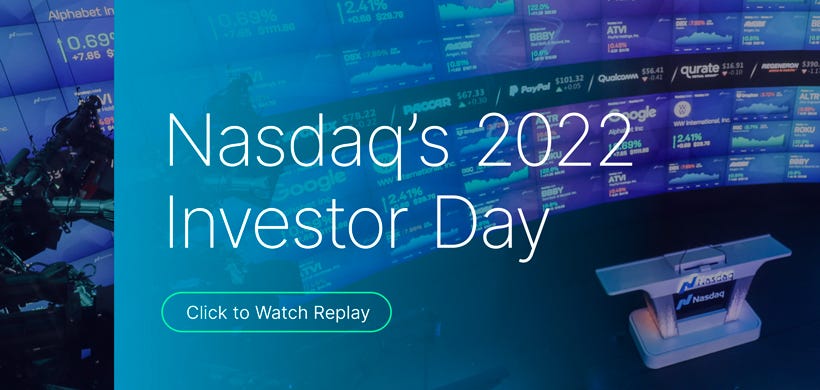Answering 8 Equity Research Most FAQs
I will answer some of the most frequently asked questions about sell-side equity research.
WATCH this article:
What are my chances?
Every equity research job post you have come across reads like this:
The problem is: that is 1-3 more years of experience than you have when you first try to break in as an outsider.
There are two ways to get into equity research. The front door and the back door.
Front door means interviewing on campus with recruiter screening and interviewing with analysts who might not even be the analysts you will work with, and then with the Director of Research.
If you don't have the right degree or don’t go to a target school, getting an interview through the front door will be hard.

So how else can you get job leads? Through the back door, where you cold-email a hiring analyst and demonstrate you can do the job already.
It comes down to five things:
Do you know corporate finance and accounting?
Can you model and value businesses?
Do you know how to analyze a business and an industry?
Can you generate actionable stock ideas?
Can you present the ideas convincingly and defend your thesis?
All these five skills are learnable on your own time.
If I were the hiring manager, I could assess your ability via your stock pitch and answers to technical and investing questions. A stock pitch is the ultimate integrated exam of the five skills mentioned previously. If you know what you are talking about, I will hire you over someone who looks better on paper.
What are the exit options for equity research?
Most exits are buy-side, investor relations, and the broad category of “corporate roles.”
Investment Management - the “Buy Side”
The buy-side is a risk-taking job. So it’s a very high-expectation, high-stress profession.
Anyone who has been in the same equity research seat for at least a year and a half at a decent enough shop should have no problem getting buy-side interviews, especially at a multi-manager hedge funds platform like Citadel, Millennium, or Point72. The multi-managers (or “pod shops”) are known for high employee turnover so they are always looking for headcount. Your longevity in a multi-manager is a completely different question, but there will be roles there if you want.
The single-manager hedge funds are more fragmented, they rarely post jobs because jobs are filled through referrals. And the long-onlys are even harder to get into because it’s relatively lower stress and better job stability than hedge funds.
Investor Relations
Investor relations are a very common exit because the skills are very transferable. Instead of telling stories for a basket of companies. You will be tasked to tell the story of your future employer to sell-side analysts and buy-side investors.
Having worked in equity research, you know what buy-side investors are looking for, and how your management team wants to deliver the narrative and you definitely know sell-side analysts’ motives. You are just on a different side of this roundtable that’s called the capital market.
Corporate
Corporate roles are a very broad term. Many paths at a company can leverage your equity research skill set, but different high-intensity backgrounds are favored for different corporate roles:
Investment bankers typically exit to corporate development and strategic finance.
Management consultants exit to corporate strategy roles.
Equity research most prevalently exits to investor relations.
What’s left is FP&A (Financial Planning & Analysis), which I think bankers and equity research can have equal footing in getting in depending on a company’s specific needs and how you tell your story.
Any role that requires transaction experience will be hard to get because equity research professionals have never been exposed to transaction execution typically learned during investment banking. If you want a shot at a transaction-related role (corpdev, corporate venture), highlight any IPO experience you had in equity research.
If you exit at more senior ranks in equity research, your optionality is better, but getting in is harder because of your cost. Aside from becoming the Head of IR, Senior Analysts get roles like CFO of public or private companies, VC, and so on.
There are other off-beaten paths you can exit to, but you will need both upskilling and networking.
Which bank has the best equity research department?
A giant misconception outsiders have about sell-side equity research is the brand resides in the firm. Instead, the brand resides with the analyst. You need to prioritize the quality of and the fit with the analyst when deciding on offers.
Equity research teams operate like franchises and you work for the analyst first and foremost. Your emotional wellness, work-life balance, and career prospects all live or die with your senior analyst.
If you are deciding on job offers, I recommend my process.
There are too many edge cases that I cannot address them all. I will highlight only one.
If you plan to exit to a corporate job after equity research, the sad reality is corporate people1 care more about your firm’s brand than which analyst you worked for. If you work for a highly respected analyst but sit in a middle market bank, they are not going to know who is Cowen, Piper Sandler, or even Evercore ISI because they are not in the news as much as JP Morgan, Morgan Stanley or Goldman Sachs. Many might not even know the difference between investment banking and equity research.
I have a friend who was a VP in equity research for many years and exited to corporate to work directly with the CFO. For three years he was at the corporation, the CFO thought he used to work in investment banking.
If you already know you will go corporate, why not just work in corporate right away instead of working for a mediocre analyst at a brand-name bank?
On the point of mediocre analyst, this leads to my next point on II.
Do I always go with an II-ranked analyst?
Here’s your favorite answer: it depends.
II (Institutional Investor) is a popularity contest. There are many ways for a sell-side analyst to get II votes from clients, and you are probably not surprised how few sell-side analysts choose to add value with money-making stock picks. Why make it difficult when you can just peacock your way to stardom?
If you want to become a senior sell-side analyst, working for an II analyst is helpful as it can become part of your brand (“I worked under an II-ranked analyst as a junior”) and more importantly, you can observe what your boss does to earn votes.
If you want to work for a long-term investor, you should work for an analyst whose knowledge and view are valued by those buy-siders. Most long-term investors don’t call the sell-side. So there is no point in working for II-ranked analysts if they are only known for channel checks.
If you want to work for a fund that trades a lot (such as a multi-manager), working for an II analyst can help because sell-side analysts are incented to prioritize serving top commission payers, so you will get exposure to the type of clients you want to work for.
However, remember: getting a buy-side job is ultimately about you. Your sell-side seat is a distribution channel, but you need good products to win customers. If you ain’t good, no buy-sider will ever hire you.
For corporate jobs, I wouldn’t worry about II because no one in the corporate world knows II unless they have worked in high finance.
When am I ready to move to the buy side?
It’s between now and never.
Some joined equity research explicitly as a jump board for the buy side. Others joined because they couldn’t land an investment banking offer. They have no idea what equity investing is and what it takes to succeed in the profession. They just know many of their peers exit to the buy-side and maybe that’s what they should do, too.
You also should want to join the buy side for the right reasons. If you are solely motivated by the better work-life balance and compensation upside, you will not succeed. I guarantee it. Buy-side is only good hours because time spent voluntarily reading and researching doesn’t count in our mind, and it’s better compensation upside only if you perform.
All of us are motivated by making a lot of money (that’s not a sin IMO), but we also know the game is hard and we need to get smarter every day.
And some of us started when we were a teenager (not me), while you just worked on the sell-side for a year or two and think you are going to be the next Dan Sundheim.
If you stay on the sell-side for 1.5 or 2 years, start thinking about whether you want to go buy side. I strongly believe you should figure out what kind of investor you want to become, instead of blindly jumping to a multi-manager just because your buddies on other sector teams went that route.
You should try to get to the buy side before making a sell-side VP because there is the risk of you becoming too expensive for the buy side.
Tips on Managing Health / Social Life?
Regarding health, I have found eating well and drinking water to be the most important. The longer you stay in the profession, the more talking you have to do every day. I am always amazed how analysts can talk on the phone with management or buy-side clients all day, but then I realize they are the very same people who love listening to their one-minute, 5-part questions on earnings calls (there is an epic one-minute question in the video below.)
So you need to eat well to have a clear head. Find time to work out because you need the stamina to do and talk. There is no excuse because most of the time equity research is not going to be as brutal as investment banking. I have heard good things about meditation, I have never done it, but it’s worth exploring.
Regarding social life, it’s highly dependent on your analyst (see why the analyst matters more than the firm?)
One of my Instagram followers told me a really funny story. He works in equity research and was dating his ex-girlfriend at the time. It was a day during the earnings season, so he told her that he couldn’t make to dinner.
And she said: “Why don’t you start working on your earnings sooner, so you can go to dinner with me?” I definitely LOL’ed at that one.

Dating is doable. You need to make sure your partner understands a few key events 1) earnings season for sure 2) II season, which they couldn’t care less but need to understand the publication and outreach intensity ramp up 3) conference season, same idea where you need to handle logistics of a conference with thousands in attendance and can even be during earnings season.
Yes, social life does take a hit if you work on Wall Street, but it’s more manageable in equity research. Two tips: 1. Always think about new ways to do your tasks more efficiently. 2. Network with your peers to get best practices on how to be more efficient and deal with your senior analyst. That’s the best you can control.
Will AI make sell-side research obsolete?
No.
There is a giant misconception that buy-side clients value sell-side research for their Excel models, which are disrupted by pre-built model vendors, and for their research notes, which are disrupted by independent newsletter writers, FinTwit, and expert networks.
Instead, I think of sell-side research as an aggregator of suppliers of capital and demanders of capital. Companies will continue to use investment banks to raise large amounts of capital because capital providers are a fragmented ecosystem of mutual funds, hedge funds, family offices, pension funds, insurance companies, and so on.
And these thousands of hedge funds don’t have enough bargaining power on their own to demand a one-on-one with the company’s CEO and CFO.
Equity research will always be in the middle to make that connection. And the management and investor relationships will always be built by human beings, not by robots.
That said, I am intrigued about how the sell-side research industry will evolve in terms of how many written products will be pumped out in the future in a world where AI solutions will pop up for fundamental research purposes.
But no, I do not believe that makes sell-side equity research obsolete.
Plus these equity research functions are so cut to the bone, how much left is there to cut? Maybe Dennis Reynolds can prove me wrong.
Should I lateral to a competitor sell-side analyst?
It depends on your goal. Before I go into the decision tree, just know when you move, you have to deal with quirks with your new analyst and team, and you reset your clock for at least 1.5 to 2 years before you can pursue another move to where you want to go.
Analysts in the same sector play the zero-sum game of getting II votes, so many view each other as nemesis as long as they are still in the profession, and losing a junior to a competitor is a huge hit to their ego.
I am in the camp of everyone for themselves in this profession, but I just want you to think through it because you will burn a big bridge.
If your goal is to become a sell-side analyst and you are not getting exposure to equity salespeople and clients for brand-building purposes, you SHOULD lateral provided the new opportunity provides the things that are lacking under your current analyst.
If you are not getting traction to buy-side jobs, 99% of the time it’s your issue. Unless you work at a really bad shop, buy-side clients should know who your analyst is. If you don’t know your coverage well or you can’t think like an investor, moving to a competitor analyst will not help YOU significantly, even if they are II #1 or are most respected by the buy side.
You should instead leverage my content to pinpoint whether you have any product issues (research process, stock pitches, technical interview, etc.) I suspect most of you also don’t do enough one-on-one networking to build a brand in front of firms you want to work at.
You don’t need to move to a new seat to fix your product and distribution issues. You can take control of them on your own time.
Thanks for reading. I will talk to you next time.
If you want to advertise in my newsletter, contact me 👇
Resources for your public equity job search:
Research process and financial modeling (10% off using my code in link)
Check out my other published articles and resources:
📇 Connect with me: Instagram | Twitter | YouTube | LinkedIn
If you enjoyed this article, please subscribe and share it with your friends/colleagues. Sharing is what helps us grow! Thank you.
Sorry, I can’t come up with a better term for people who work in corporations, basically anyone who doesn’t work in financial services












I totally agree on your perspective!
Sell-side is way more about arranging a deal than it is about crunching numbers
What about from equity research to investment banking to strategy consulting?? 😂😂